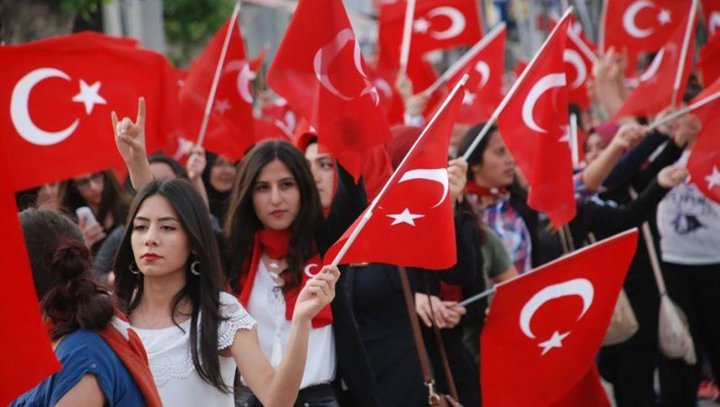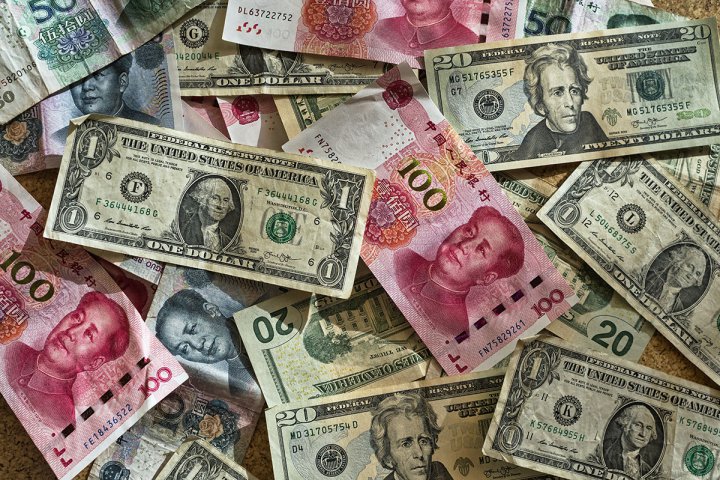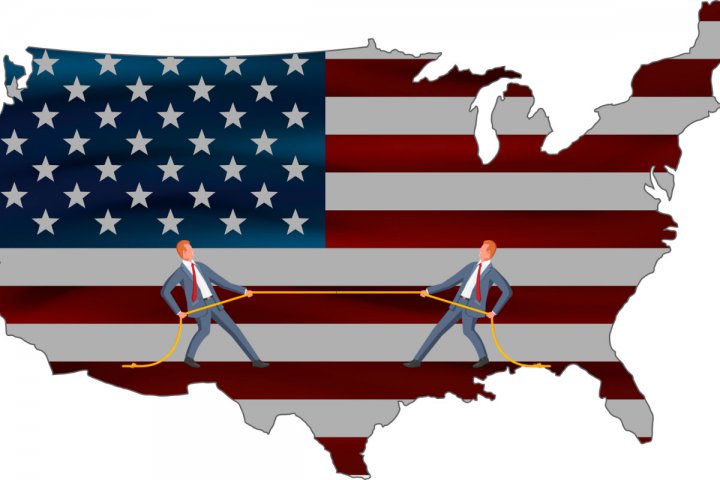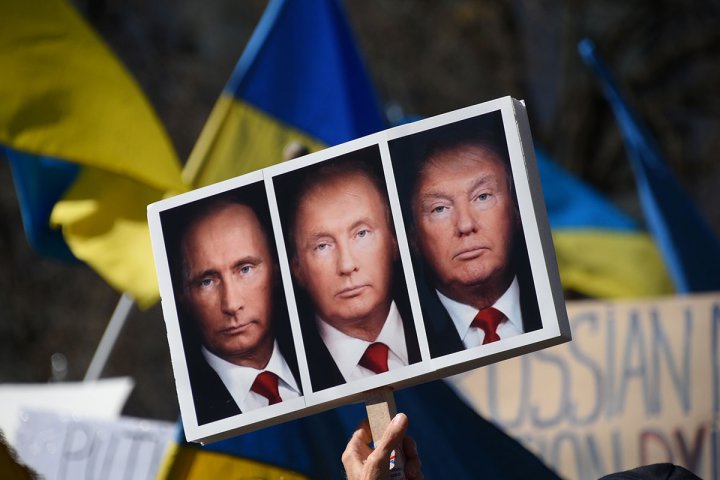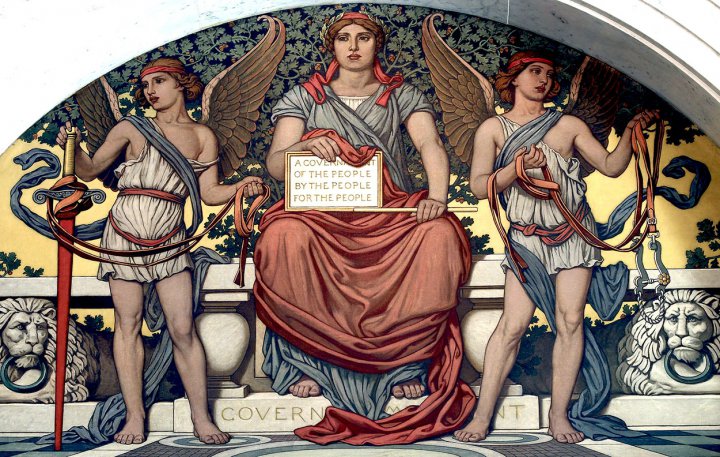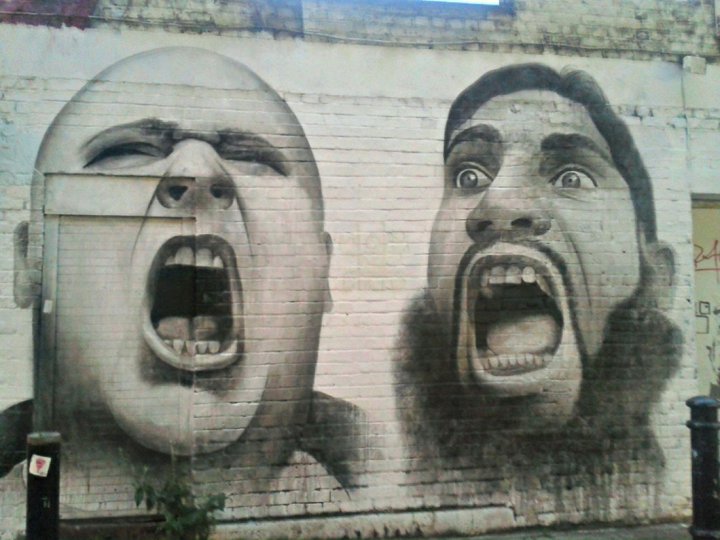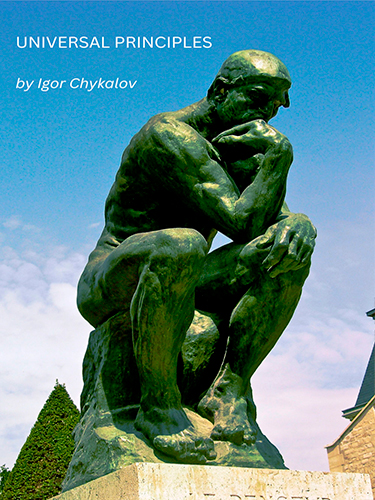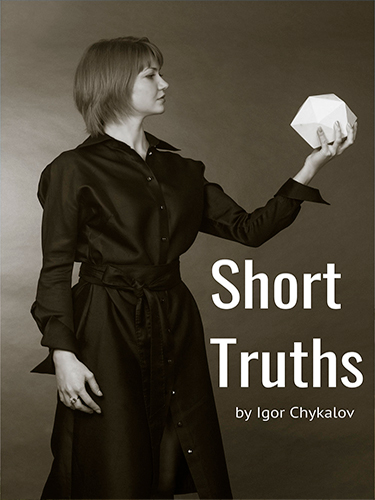President Erdogan's Judgment Day
Will the Turks elect Mr. Erdogan as president again after he
has impoverished them 10 times within last 10 years?
He can try to arrange the vote count he needs or call his
supporters to the fight like every authoritarian leader would do.
has impoverished them 10 times within last 10 years?
He can try to arrange the vote count he needs or call his
supporters to the fight like every authoritarian leader would do.
On May 14, the presidential election is taking place in Turkey, which is called “landmark” and “pivotal” ones. It is also called an «election of the century” because of its importance (current President Erdogan has been in power for the past 20 years and many Turks are not happy with his rule now), and perhaps also because 2023 is the 100th anniversary of the founding of Republic of Turkey by Mustafa Kemal Atatürk.
Mr. Erdogan's main opponent in the election is a representative of the united opposition Kemal Kilicdaroglu.
……….
Recep Tayyip Erdogan - a long life in politics.
Mr. Erdogan was the mayor of Turkey's largest city, Istanbul, from 1994 to 1998, then he served as the country's prime minister (the highest position in Turkey's executive branch) from 2003 to 2014, and after he was the elected president since 2014. In 2018, Mr. Erdogan eliminated the post of prime minister whose powers were transferred to him - the president, based on the results of the 2017 referendum. So now the power in the country fully belongs to Mr. Erdogan and his party “Justice and Development” (АК Рarty), which had lost its majority in Grand National Assembly of Turkey only in 2019.
Thus, Mr. Erdogan has got what he wanted for 20 years - almost unlimited power: “He became head of state, head of government, head of ruling party, head of the national police and head of the military as chief of staff. He became all powerful as Turkey's new sultan.”
However, as opportunities grow, so does responsibility. Now he alone is responsible for all the achievements and problems of the country over the past 20 years.
……….
The Turks and Turkey.
Turkey is ancient and quite rich country (estimated GDP is around $3.5 trillion in 2023 or #11 in the world), despite the mostly poor population. I think this is mainly due to the cultural peculiarities of the Turkish nation. I found the Turks to be quiet, friendly, helpful, very patient, unpretentious and hardworking - their working week includes Saturdays. The authorities take advantage of all this, it is considered normal and no one grumbles. Basically, men work and earn money, women maintain the house and raise children.
Turkey, in my opinion, is the only country that managed to gain financially and politically during the 2020-2021 coronacrisis (the country hasn’t disrupted the tourist seasons) and current Russia's war against Ukraine. Turkey has received a lot of refugees from Russia and Ukraine, who have bought a lot of real estate in Turkey, and arranged so-called «grain deal», that allowed Ukraine to establish the export of Ukrainian grain from the Russian-occupied South... Turkey did not join Western sanctions against Russia and at the same time it closed Bosphorus and Dardanelles straits to Russian warships. The Turks sell to Ukraine battle drones «Bayraktar» and smile sweetly at the Russians. Many major airlines suffered big losses in 2020-21, but Turkish Airlines made a good money because Turkey hosted all tourists despite the coronavirus restrictions, and now the company gains due to the fact that all routes from and to Russia lie through Istanbul because of the sanctions.
Here are a few more of my observations of the Turks and Turkey: complete 24/7 safety (at least in the resort towns on the Mediterranean coast) for women and children, delicious, healthy and cheap food, fairly clean sea, inexpensive entertainments, expensive alcohol, widespread smoking, total internationalism in relationships, poor execution of traffic rules, a lot of fragrant street markets and the ability of the locals to sell you what you do not need.
……….
Turkey is an independent political player on the world stage.
Mr. Erdogan's foreign policy can be described as "tricky pro-Turkish" one as it basically should be. Turkey is geographically located in Europe and Asia and has always sought to sit on two chairs simultaneously - now Mr. Erdogan manages to be friends with everyone and became an intermediary between the West and the East. For example, as a member of NATO, the country buys F-16 fighter jets from the US, at the same time buying from Russia the S-400 missile systems which can be used against F-16.
Mr. Erdogan has been maintaining friendly relations with Mr. Putin for many years, which didn’t prevent him from shooting down Russian attack aircraft near the Syria-Turkey border in 2015 and beating a little the Russian troops in Syria in 2020 during the Turks' Operation “Spring Shield”. Thus, Mr. Erdogan is the only (so far) country leader who has been able to inflict a small military defeat on Mr. Putin, who certainly takes into account the opinion of Turkey.
Mr. Erdogan is certainly a strong personality and can say "no" to Mr. Putin or any other world leader.
………
Turkey is essentially the “clannish” and not “democratic” country.
A “clannish country” means that there are several clans (the elites) which divided the country's economy, each clan controlled its piece and negotiated about appointing the formal leader of the country. China, Russia and all pseudo-democratic countries do this, and that is why it is always funny to watch them simulating democratic elections, where the people play the role of scenery.
If clans cannot agree (like it is happening now in the US) among themselves, a war for power ensues and elites always involve people here because otherwise they can do nothing. If no clan can win the confrontation quickly, the war turns into a civil war and one of the clans wins, proclaims the "victory of the people" and continues to plunder the country's economy until the next conflict at the top.
Another finale is the division of the country between the warring clans like it happened with Ukrainian region of Donbas in 2014.
Turkey survived a coup d’etat attempt in 2016. The country's military top decided that Mr. Erdogan was leading in the wrong direction. Mr. Erdogan appointed the core of the rebellion his fugitive opponent F. Gulen, who had been living in the United States since 1999. The people took to the streets of Istanbul and other cities for Mr. Erdogan, the military leaders failed to build on their success, the instigators were arrested and there was a big purge in the central and local government agencies. I spoke to several Turks in 2020 on this subject and they confirmed that the people did then deliberately take to the streets to support Mr. Erdogan.
Now many ordinary Turks feel a growing dissatisfaction of Mr. Erdogan’s economic policy, corruption, poor organization of the rescue operations after the devastating earthquake of February 6, 2023 and the large influx of refugees.
It's mostly about economic policy.
……….
Mr. Erdogan still hasn't figured out where inflation comes from.
Mr. Erdogan has dropped Turkish lira 10 times in the last 10 years - 1 USD was worth 2 Turkish liras in 2013, and now it is about 20 liras.
Why did this happen?
Farming is very well developed in Turkey. Mr. Erdogan has always promised and given loans to his people (farmers, in particular) for business development. The only wrong thing here is that those loans, as it is rife in the world now, are taken out of thin air, so the Central Bank of the Republic of Turkey devalues its own currency and no one can explain that to Mr. Erdogan, who might have no desire to figure that out. I have written several times on the subject of hidden inflation of fiat money and the associated devaluation of the national monetary unit. You can see a short explanation here.
National banks of different countries fight the self-made inflation in the same way - they raise the cost of borrowing by increasing interest rates and then people borrow less and buy fewer goods and services. However, Mr. Erdogan promised to give cheap loans and keeps doing that, not realizing that he devalues Turkish lira by this. At the same time, he categorically refuses to raise the interest rate (which in this case doesn't matter at all), instead of simply issuing the loans from existing money and not inflating the economy with “empty” one.
Mr. Erdogan is much criticized for his "unorthodox economic policy" by all economists who led their countries to a lower, but still high inflation, which now they can't beat either. Now the inflation has gone beyond the targeted annual 2% because of the large amount of “surrogate money" issued by the various national banks over the last couple of years. Kristalina Georgieva, IMF Managing Director, states that in 2020-2021 "... governments took exceptional measures—including about $16 trillion in fiscal action and a massive liquidity injection by central banks". That is why euro has fallen in price by 6.9% as of March 2023, USD – by 5%, British pound – by 10.1%... Turkish lira has plummeted by 50.5% for the same period of time.
That’s too much, and a moment comes on May 14 when it could cost Mr. Erdogan the presidency.
……….
Mr. Erdogan could rig the current election like almost every authoritarian leader would do.
The devaluation of the national currency leads to the impoverishment of the people because wages do not keep up with rising prices and every citizen and guest of Turkey feels it.
My family and I recently visited Turkey and I immediately remembered the inflation which I had experienced in Ukraine in the 1990s. It's when the price of 5-liter bottle of water jumps from 16 lira to 20 lira the next day and stays like that for a while before the next jump. Even my 14-year-old son noticed the difference and asked me the question. I explained in the best way I could.
It was relatively easy for us to live in Turkey - we exchanged our dollars for liras and bought whatever we needed, but the locals just had to passively watch as they could afford less and less on their paychecks.
……….
The May 14 election is indeed a landmark election for Turkey.
Everyone will see whether the country is a “unitary presidential constitutional REPUBLIC”. Let me remind you that the word «republic” came from Latin “res publica”, meaning “public affair”, and it is “a state in which political power rests with the public and their representatives, in contrast with a monarchy».
Turkey under Mr. Erdogan’s leadership has shifted significantly towards monarchy and authoritarianism, which from my point of view is neither good nor bad, because the authoritarians can be enlightened (like Lee Kuan Yew in Singapore) or despotic (like Mr. Putin in Russia). In my opinion, Turkey (as well as Russia and China) is closer to the authoritarian model of statehood by their established cultural traditions/values and it will never become a "democracy" in the Western sense of the word. Nevertheless, the people of any country should periodically remind to their leaders (both democrats and authoritarians) that they are the main authority in their countries, as it is written in many constitutions.
We will see in the nearest future how the will of the people (which, in fact, the "democracy" is about) will be implemented in “Republic of Türkiye”. Recently, Mr. Erdogan has said: «We come to power with democratic means. If my nation decides otherwise, I will do what democracy asks us. We will consider any results coming out ballot box as legitimate».
We'll see soon. These are just words so far. If Mr. Erdogan will not try to rig the election results by force of his current presidential power, then he is a real patriot of Turkey and a democrat at his heart.
……….
If neither Recep Erdogan nor Kemal Kilicdaroglu get 50% of the votes on May 14, there will be a second round of election on May 28 to determine the next president of Turkey.
……….
P.S. Dear Reader! I am very much interested in your opinion on the subject of this article. Please, write a comment or ask a question if you want to clarify something.
Yours,
Igor Chykalov
Comment
✚ Add comment
